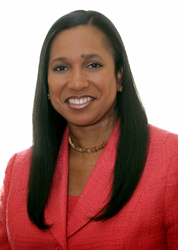
Dr. NaNotchka Chumley, Family doctor and author of The Best Patient Advocate
“Physicians should be the ultimate patient advocates. I am empathetic and caring and can connect within seconds of meeting a patient. In addition, I bring positive energy into the examining room.”
NORTHRIDGE, Calif. (PRWEB)
December 14, 2022
Finding a holistic medical doctor, who focuses on the body, mind, spirit, and emotions when diagnosing and treating, can be challenging. Yet Dr. NaNotchka M. Chumley is one. Her recently published book, The Best Patient Advocate, is her prescription for optimal patient care. In the following interview, Dr. Chumley shares why combining holistic with traditional medicine motivates patients to take control of their health and wellness.
So who are you, Dr. Chumley?
I am a family medicine physician, a native of Los Angeles, California, and author of The Best Patient Advocate. I am educated in Homeopathic Medicine and integrate it with my western and osteopathic medical training. I was the first Osteopathic Physician President of the Association of Black Women Physicians and am passionate about Women’s Health and Patient Advocacy. I have over 25 years of experience working with patients and their families.
What brought you to practice medicine the way you do?
The way I practice medicine is in my DNA. I love to empower patients, learn as much as possible about their conditions, and set goals that improve their health outcomes. I remind them that they ultimately control their health, especially their diet. Most importantly, I listen, hear, and see my patients so they don’t feel alone in their healthcare journey.
How would you describe yourself as a patient advocate doctor?
Physicians should be the ultimate patient advocates. I am empathetic and caring and can connect within seconds of meeting a patient. In addition, I bring positive energy into the examining room.
How challenging can being both a caregiver and a patient advocate be?
These are two different roles. First, a caregiver is usually a family member or friend. Second, caregivers typically help with activities of daily living. As a physician, I am my patient’s advocate. The patient advocate listens and ensures that the patient’s concerns are heard and addressed. As a medical patient advocate, I have health knowledge as a physician. Therefore, I educate patients on their medical condition and the health care system.
What happens if a lower–income individual needs a patient advocate yet has no funds to hire one?
In the hospital setting, there is an ombudsman, a social worker, a case manager, a nurse, and a physician that can assist an individual who needs advocacy. In addition, the patient’s insurance plan covers case management and nursing. I integrate patient advocacy into the outpatient setting.
Have you considered training trusted community leaders to be patient advocates?
I am developing a curriculum for community leaders to train them on the nuts and bolts of patient advocacy and navigating our complicated healthcare system. Numerous grants are available to support my vision.
How do you work with your patients toward healthy outcomes while also practicing self-care to ward off burnout?
I don’t want to blame the patient for missing an appointment when facing insurmountable health challenges. Being present is critical to assisting the patient on a healing journey toward the best outcome. Helping the patient to tap into faith/spirituality is essential. As for my self-care, nutrition is vital. I also pray, meditate, practice breathing exercises, and get a weekly massage to rejuvenate my body and avoid burnout.
What/who made you who you are?
Everything starts at home. Although my mother became a widow at a young age, she was my first mentor and cheerleader. Education was the ingredient to becoming successful. I have to give credit to my “Auntie.” She influenced me to be super intelligent and still have a lot of fun. I was self-motivated early, and the writer, Dr. Maya Angelou, was my influencer later. Others were Dr. Luther Jennings, Department Chair of Psychology, Occidental College; Mrs. Francine Battle, an extraordinary teacher at Windsor Hills Elementary School; Dean Elaine Boston, School of Public Health and Tropical Medicine in New Orleans, and Dr. Beverly Guidry, Western University of Health Sciences.
How much is integrative medicine a part of how you practice medicine?
I integrate homeopathy regularly in treating a patient’s symptoms. I use a mind, body, and spirit approach to practicing medicine and healing. Osteopathic medicine teaches us that everything is interrelated, and we use a whole-person approach to diagnosis and treatment. Diet and lifestyle changes align with the integrative medicine approach that improves health and wellness.
Dr. Chumley’s book, The Best Patient Advocate, is available on Amazon and at Malik Books in Culver City, California. For interviews and speaking engagements, please send us a message at thebestpatientadvocate.com.
Share article on social media or email:

